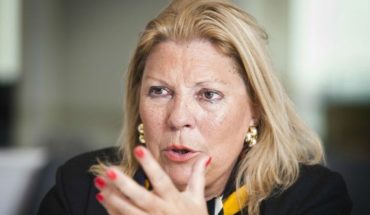The International Monetary Fund (IMF) stressed that Chile’s economic recovery “is well advanced” and welcomed the agenda of “far-reaching” reforms that the President of the Republic, Gabriel Boric, promised to execute.
“We welcome the Chilean authorities’ far-reaching reform agenda, which aims to address inequality, protect the most vulnerable and foster a green economy while maintaining macroeconomic stability and fiscal sustainability,” the institution said after ending a four-day visit to Chile.
The president, who on March 11 became the youngest head of state in the country’s history, heads the most leftist government since the ousted Salvador Allende and won the runoff in December with a coalition made up of his party, the Broad Front, and the Communist Party.
Defender of the constituent process carried out by the country and critic of the neoliberal model installed by the military dictatorship (1973-1990), Gabriel Boric wants to increase basic services and expand a welfare state similar to the European one, but he committed himself to fiscal consolidation to contain the fear of the business community.
The former Magellanic deputy has put himself at the forefront of an economy that fell by 5.8% in 2020 – its biggest blow in four decades – and that recovered faster than expected last year, with an expansion of 11.7%.
According to the IMF statement, “the economic recovery is well advanced, driven by a broad and coordinated policy response, widespread vaccination, and high copper prices.”
The brilliant recovery is linked to skyrocketing inflation, which closed 2021 at 7.2% – the highest in 14 years – and was caused by fiscal aid to mitigate the impact of the pandemic and the three early withdrawals of pension funds approved by Congress, which total more than 50,000 million dollars.
The central bank decided at the end of January to raise the benchmark interest rate from 4% to 5.5%, its highest level since 2011, to try to contain prices.
For the institution, the withdrawal of monetary and fiscal stimulus will slow growth this year, “which will help mitigate the risks of overheating and rising inflation.”
However, he added that “given the delay in the recovery of employment in certain sectors and the increase in global prices of food and fuel, fiscal policy should continue to provide specific support to the most vulnerable.”
For this year, the Chilean issuer expects an expansion of between 1.5% and 2.5%, while for 2023 the projection is between 0% and 1%.
The IMF also warned that “global risks and uncertainty are high and even more so because of the war in Ukraine,” but assured that Chile has “resilience.”
“A sustained track record of very strong policies and institutional frameworks and relatively low public debt improve Chile’s resilience and ability to respond to shocks,” he concluded.
IMF valued President Gabriel Boric’s reform agenda: it seeks to “address inequality, protect the most vulnerable and foster a green economy”
March 29, 2022 |





